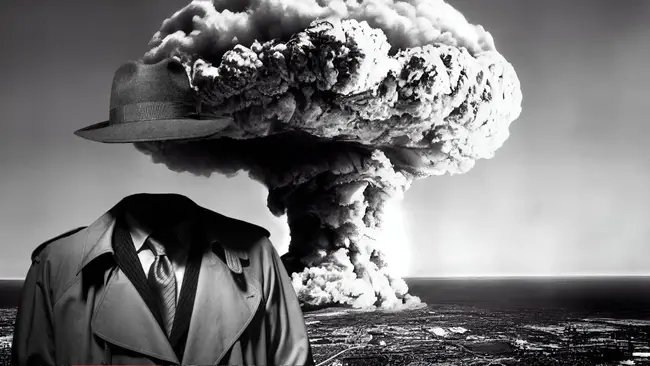The cast of Oppenheimer left the film’s UK premiere abruptly to “write their picket signs” as Hollywood actors strike over pay and the rise of unregulated use of AI.
Actors including the likes of Cillian Murphy, Florence Pugh, Matt Damon, Emily Blunt and Rami Malek walked the red carpet in London on Thursday but ditched the event early to “go and write their picket signs” in preparation for the “imminent” strike by the actors union.
Reasons for the strike include issues surrounding the use of unregulated generative AI tech in Hollywood, such as the production of AI replicas of famous celebrities taking the place of actors on-screen.

Actors are also striking against reductions in pay that have come with the rise of new technologies and online streaming services such as Netflix.
Oppenheimer director Christopher Nolan told the audience at the premiere: “You've seen them here earlier on the red carpet.”
“Unfortunately, they're off to write their picket signs for what we believe to be an imminent strike by Sag, joining one of my guilds, the Writers Guild, in the struggle for fair wages for working members of the unions, and we support them,” Nolan added.
Christopher Nolan says the cast of #Oppenheimer left the premiere to ‘go and write their pickets’ and join the strike pic.twitter.com/rc2SaSxcfk
— Deadline Hollywood (@DEADLINE) July 13, 2023
The move came as the Screen Actors Guild-American Federation of Television and Radio Artists announced it would be supporting the strike in Hollywood. The dual strikes are Hollywood’s most widespread halt in work in over six decades.
Lead actress Emily Blunt, who was among the Oppenheimer stars that left the premiere earlier to support the strike, told Deadline: 'I hope everyone makes a fair deal and we are here to celebrate this movie.”
'If they call [a strike], we'll be leaving together as cast in unity with everyone. We are going to have to.”
AI Replicas
The Oppenheimer cast's move comes as the leaders of the striking actors’ union, SAF-AFTRA, criticised Hollywood studios for offering an AI proposal that would allow studios to replace background actors with AI replicas in return for a single day’s pay.
The Alliance of Motion Picture and Television Producers (AMPTP), which represents major Hollywood studios, issued a statement bringing the “groundbreaking AI proposal” to the table after the actor began striking.
The AMPTP’s trade group said the proposal would “protect performers’ digital likenesses,” requiring consent from actors for the “creation and use of digital replicas or for digital alterations of a performance.”
SAG-AFTRA is officially on strike, marking the first double strike involving actors and writers since 1960s #THRNews pic.twitter.com/vK1RXoJ7kH
— The Hollywood Reporter (@THR) July 14, 2023
Commenting on the proposal, SAG-AFTRA negotiator Duncan Crabtree-Ireland Background said actors would give their consent to have their likeness scanned in return for one day’s pay.
The studios would “own that scan, image, likeness and be able to use it for the entirety of any project they want with no consent and no compensation,” Mr Crabtree-Ireland added.
But it’s not just actors concerned about the rise of AI in Hollywood. Similar complaints about the unregulated use of AI were raised by the Writer’s Guild of America when it began a strike of its’ own earlier this year.
In a proposal, the union called on the AMPTP to “regulate the use of artificial intelligence on MBA-covered projects.”
This would mean that “AI can’t write or rewrite literary material; can’t be used as source material; and MBA-covered material can’t be used to train AI.”
The AMPTP rejected their proposal, instead suggesting that annual meetings should be held to “discuss advancements in technology.”
AI's attack on creatives
The Hollywood strikes are part of a larger ethical debate surrounding the rise of generative AI and its impact on the creative industries.
Creatives of all industries – from writers to singers to artists – have raised concerns about AI models replicating their copyright-protected work and potentially destroying their professions in the near future.
As per the Copyright Act, using information without the owner's consent is permitted under certain circumstances, including news reporting, quoting, teaching, satire or research purposes.
But, while AI companies including ChatGPT creator OpenAI have used this argument to defend their scraping of artists’ work, the training of AI systems on copyright-protected data remains a legal grey area when companies start monetising it.
In January, for instance, Getty Images filed a lawsuit against AI Art Generator Stability AI for allegedly stealing millions of copyright-protected images to train its AI image generator Stable Diffusion, which charges users a fee to generate premium types of content.




Comments ( 0 )